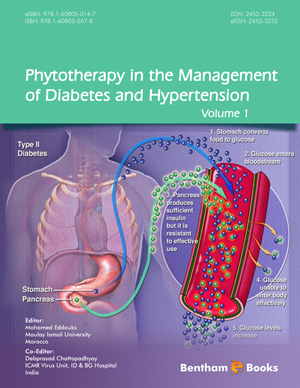Abstract
Diabetes is a disease that affects millions of people worldwide and is characterized by elevated levels of glucose in the blood due to its overproduction mainly by liver, and underutilization by insulin requiring organs such as liver, adipose and muscle tissues. There is, however, glucose over utilization in tissues not dependent on insulin for glucose transport like kidney, nerve and brain. Due to the excess tissue glucose there are serious complications and its reversal is important for a good metabolic control and normalization of body. Diabetes adversely affects the arteries, predisposing them to atherosclerosis, which in turn cause high blood pressure and other cardiovascular problems. If not treated, it can lead to blood vessel damage, stroke, heart failure, heart attack, or kidney failure. Diabetes comes in a variety of types with the most common being type 1 and type 2. Type 1 is an auto-immune disease resulting from an insulin deficiency; while type 2 is characterized by an insulin resistance resulting from genetic factors, poor diet, excess weight and inactivity. Compared to people with normal blood pressure, hypertensive people have an increased risk of coronary artery disease, strokes, peripheral vascular disease (hardening of the arteries in the legs and feet) and heart failure. This paper will discuss the biochemical events of these metabolic disorders and the relationship between diabetes and hypertension to understand how the intervention process for its management can be initiated in personal level.
Keywords: Diabetes, hypertension, complications, blood pressure, insulin, heart, vascular, management.






















